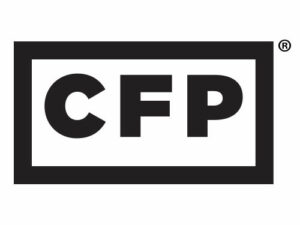By Bryan Trugman, CFPⓇ
For this article, I have featured an interview with Elan Wurtzel, who is an excellent personal injury attorney and also my business associate and personal friend. This interview discusses the financial impact of accidents and injuries, and also highlights the importance of having proper insurance coverage in place. You can learn more about Elan’s legal practice at WurtzelLaw.com.
Many people don’t consider how a personal injury may impact their financial plan. I’ve seen injuries and illness wreak havoc on a long-term financial strategy. Today, I want to help you better understand the risks and how to plan to protect yourself and your financial plan from an unexpected disaster.
What would you say are some unobvious ways that injury affects a family financially?
Elan Wurtzel: Unfortunately, in the United States, many families live paycheck to paycheck. A majority of families in the United States don’t have the ability to take care of a $500 emergency. A lot of medical care is not 100% covered. Also, if the person who’s injured provides childcare for a family member, you’re going to have childcare expenses. There’s a lot of emotional upheaval when people are injured. Depression and isolation are big factors. Getting hurt doesn’t just hurt the body; it hurts the family, it hurts the pocketbook, and it hurts the psyche.
When somebody has been injured, what do you find people wish they had done earlier as a precaution—that after an accident has already happened, it’s too late?
EW: I had a client who had a nine-month-old child and the father was killed in a horrible auto accident. There was insufficient insurance to cover his claim. We settled the case for $100,000, and that’s all we got. But this gentleman had been working as a plumber and making a nice salary. The loss of support that the baby will experience was significantly worth more than the settlement amount. They had no life insurance coverage to protect against that loss and it would have been tremendous to have that type of coverage in place before the accident.
Where there isn’t a loss of life, there can still be extended loss of income or disability. I had a client who was a UPS delivery man, and he had a private disability policy. Because of his injury, he was forced to retire from his job where he was making a substantial income, but his policy replaced all of his lost income. People who do not purchase disability coverage like this gentleman did often regret their decision. Having health insurance coverage is also important.
Choices that people make are so important. I sometimes tell a story: when the Titanic sank, there were insufficient lifeboats for all of the passengers. Years earlier, the designers had decided to eliminate some of the lifeboats to maximize the number of passengers and profits. This is an example of how accidents are a product of bad choices; specifically, not making safety a priority.
Be mindful of what’s going on around you. Take a walk around your neighborhood and you’ll see broken or uneven sidewalks. You’ll see hallways or stairways without handrails or improperly built staircases. Go into a supermarket; a lot of times you’ll see spills or greasy, slippery conditions on a floor. If you see a problem, it’s always good to report it. Once property owners have knowledge about a problem, they have a duty to address it.
We’re handling a case now where a gentleman slipped and fell in an area behind his building, where their cars were parked and residents had to go to throw out their garbage. The whole area was covered by snow and ice; this property owner made no effort to clean that area or put sand and salt down. One man slipped and fell, and he had a horrible injury—he’s still in a nursing home rehabbing.
How easily can homeowners be held financially responsible if someone is injured on their property?
EW: If you own property, you want to get umbrella coverage, which will cover you above and beyond your primary liability policies. Homeowners who hire a contractor to work on their home may not realize that the contractor’s insurance does not cover everything. Construction companies always look to shift liability for insurance purposes; contractors are really savvy about that. I’ve represented homeowners in the past and I’ve advised them to include certain language in their contracts with their contractors to protect the homeowner in terms of insurance coverage and indemnification. When people make claims under your homeowner’s policy, that can affect your ability to keep that coverage in place and can increase your premiums.
What also happens a lot: people say they had limited or no involvement. When we start lawsuits, we don’t always have all the facts, so we cast a wide net. If you don’t include someone that might be responsible, it could affect your client’s recovery. That’s why people need to have insurance coverage.
You also want to make sure you have sufficient insurance coverage and maximize your liability limits for auto policies—a lot of people don’t have sufficient auto coverage. If you employ workers, you need to have workers’ comp and business liability coverage.
Any last thoughts or information you’d like to share?
EW: If you suffered a serious injury, you may be entitled to a substantial award of money. When you receive an award or settlement, the question arises about what to do with the money. I have always encouraged clients to talk to financial advisors. People need to use the money in a productive way; we have a lot of clients who don’t do that. I had one client where we settled his case for a million dollars. About five years after the case was settled, he called me and said he was filing for bankruptcy. We had encouraged him to work with a financial advisor like you Bryan, but he chose not to. Working with a financial advisor, even at the end of the case, is probably just as important as hiring me to help you recover money in order to be compensated for the injuries you suffer.
To learn more about working with our firm and how we can help you prepare financially for the possibility of an accident or other unexpected situations, send me an email at btrugman@attitudefinancial.com or give me a call at (516) 762-7603.
About Elan Wurtzel
Elan Wurtzel and his firm are committed to representing the best interests of their clients in the areas of personal injury law, family law, and estate law. Since 1984, they have been the premier NY personal injury law firm serving Long Island and the City of New York, including Suffolk and Nassau Counties, Queens, Brooklyn, Manhattan, and the Bronx. Elan and his firm are dedicated to bringing high-quality legal services to their clients. The practice’s comprehensive resume includes accident cases of all types: car accidents, workplace injuries, slip-and-fall accidents, construction accidents, nursing home negligence, and premises liability. Elan and his team also handle family law and divorce law, estate planning and administration, and real estate law and litigation. Elan enjoys his work as a member of the Plainview-Old Bethpage Chamber of Commerce Board of Directors. As its president from 2014-2018, the Chamber experienced historic growth. One of Elan’s proudest accomplishments was the commissioning of an elegant 9/11 Memorial sculpture in his community’s public library. It contains a piece of steel from the World Trade Center and stands as a testament to the community’s resilience and a symbol of hope for future generations.
About Bryan
Bryan Trugman is managing partner, co-founder, and CERTIFIED FINANCIAL PLANNER™ (CFP®) practitioner at Attitude Financial Advisors. With more than 13 years of experience, Bryan specializes in addressing the financial needs of new parents as they seek to realign their finances, assisting divorced individuals as they navigate an unforeseen fork in the road, and strategizing with those seeking to accrue a dependable retirement nest egg. Bryan is known for being a good listener and building strong relationships with his clients so he can help them develop a customized financial plan based on what’s important to them. He is passionate about helping his clients experience financial confidence so they can worry less and play more. Bryan has a bachelor’s degree in industrial and systems engineering with a minor in mathematics from State University of New York at Binghamton. He has served on the board of the Financial Planning Association and continues to be actively involved in the national organization. He is also a member of the Plainview-Old Bethpage Chamber of Commerce, for which he has served as a vice president and board member. When he’s not working, you can find Bryan on the ballroom dance floor or engaged in a fast-paced game of doubles on the tennis court. To learn more about Bryan, connect with him on LinkedIn.



